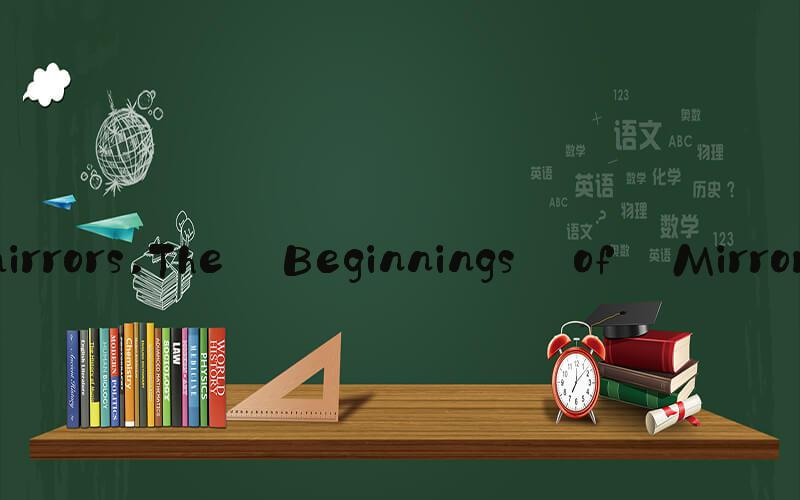
 Mirrors: Beauty and Reflection
Mirrors: Beauty and ReflectionAt some point in our lives, we have all come across mirrors. They are a ubiquitous part of our modern world, from the compact hand-held models to the large, ornate ones that grace our homes and public spaces. They are functional and practical, allowing us to check our appearance before leaving the house, applying makeup, or fixing our hair. However, mirrors are more than just a tool for vanity and self-validation; they hold a deeper meaning and a connection to our psyche.
The Beginnings of MirrorsThe history of mirrors can be traced as far back as ancient civilizations. The earliest forms were made from polished volcanic glass, obsidian, and bronze. The ancient Egyptians and Greeks often used highly polished copper as a reflective surface. Throughout the Middle Ages, mirrors became a status symbol, with only the wealthy and noble having access to them. The mirror industry as we know it today began in the 19th century with the development of the silvered-glass process, which allowed for mass production.
Reflections on the SelfMirrors have always been seen as more than just a practical object. In mythology, mirrors have been imbued with symbolic meanings. The Greek myth of Narcissus tells of a man who fell in love with his own reflection in a pool of water and ultimately died pining for himself. In many cultures, mirrors have been used for divinatory purposes, allowing people to see visions of the future or the spirits of loved ones who have passed away. Whatever their symbolic interpretation, mirrors are a tangible reflection of our inner selves.
Mirrors in Art and CultureMirrors have played a significant role in art and culture throughout history. Painters have been using mirrors to study their own faces and create self-portraits since the Renaissance. The use of mirrors in film has become a staple of the horror genre, with characters often seeing unsettling reflections of themselves. In literature, mirrors have been used as a metaphor for self-examination and self-discovery. In Lewis Carroll's "Through the Looking Glass," Alice walks through a mirror and enters a world where everything is backwards and nonsensical, representing the confusion and uncertainty of growing up.
The Future of MirrorsThe use of mirrors is not going away anytime soon. In fact, as technology advances, the concept of mirrors is evolving. Smart mirrors equipped with cameras and AI capabilities are becoming increasingly popular, allowing users to track their health, beauty routines, and even outfits. These devices offer personalized feedback and guidance, further blurring the line between the physical and digital worlds.
A Reflection on the Beauty and Importance of MirrorsOverall, mirrors have been a central part of human existence for centuries, serving not only as a reflection of the physical self but also as a window into the psyche. They have inspired countless artistic works, played a significant role in mythology and culture, and continue to evolve with the times. From the mirrored palaces of Versailles to the compact mirrors in our handbags, these simple objects hold so much more meaning and significance than meets the eye.
